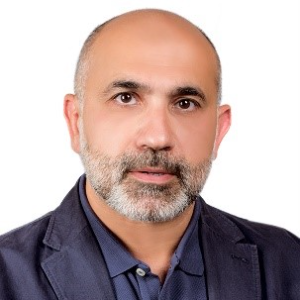Title : The impact of SARS-COV2 pandemic on the prevalence and the outcome of Candida auris infections, admitted to a tertiary hospital in United Arab Emirates (UAE), in 2022
Abstract:
In 2016, according to the United States Centers for Disease Control and Prevention (CDC), and Public Health England, Candida auris, has been labeled as an emerging multidrug-resistant (MDR) yeast. Despite causing significant mortality, there are still no available Minimum inhibitory concentration (MIC) breakpoints for C. auris. When breakpoints of other candida species were applied, almost all C. auris isolates were noted to have high resistance to fluconazole. A substantial number of isolates were resistant to voriconazole and amphotericin B. Thus, leaving echinocandins as the empirical treatment of choice. Since its discovery, C. auris has caused hospital outbreaks in multiple countries in all continents. Interestingly, significant genetic variability of isolates has been identified depending on geographic location. Besides causing bloodstream, and wound infections, C. auris has also been isolated from cultures from urine and respiratory tract.
In terms of the UAE, C. auris was first reported in 2018, in the blood of an elderly lady requiring prolonged ICU stay due to septic shock from multiple sources with persistent fungemia. Therefore, aggressive infection control measures should be implemented for early identification and to avoid any potential transmission given the vulnerable status of the patients at risk of invasive C. auris infection.
The United Arab Emirates (UAE) has borne the devastation of COVID-19 in terms of the number of infections in the population. It is important to emphasize the impact of the SARAS COV2 pandemic on Candida auris infection in the United Arab Emirates, and Al-Qassimi Hospital is an example of this. As a result, other health centers will be encouraged to do the same.
The main aim of our research is to determine the prevalence and the outcome of Candida auris infections in patients admitted to our tertiary hospital during the year 2022. While also, identifying the body sources/ sites from which Candida auris infection was isolated, and assessing the risk factors related to poor outcomes in patients with isolated C. auris.
The statistical process of this research also seeks to evaluate the burden of candidemia cases on the health and social care system in terms of epidemiological findings. This is through evaluating the length of stay and ICU admissions of patients from confirming the diagnosis and identifying the Mortality Rate at 7 days from confirming the diagnosis of candidemia.
This retrospective study reviewed medical files for a total of almost 100 patients. Sampling was done on the basis of all adults/adolescents who were admitted to the Hospital and confirmed to have candida auris isolated from a body site.



